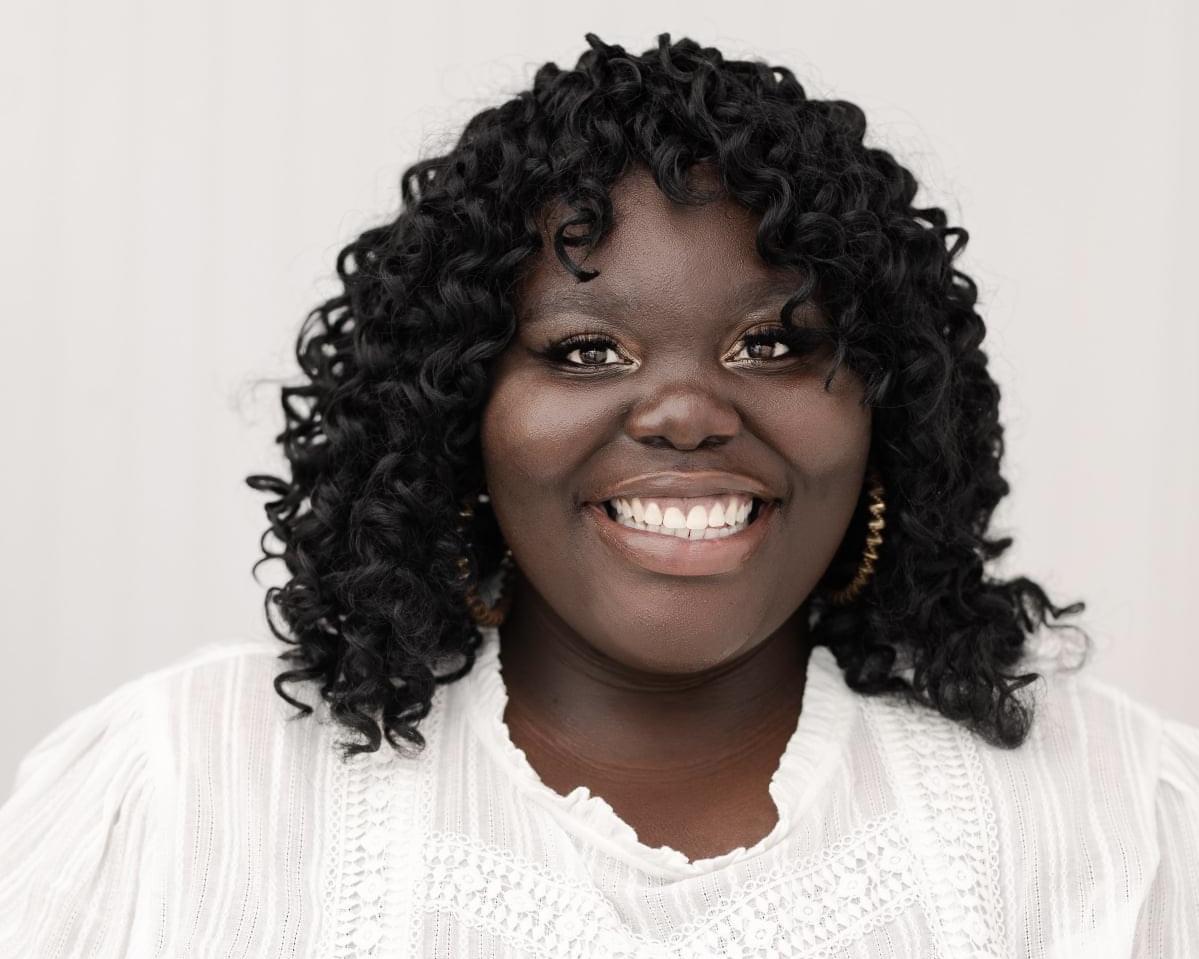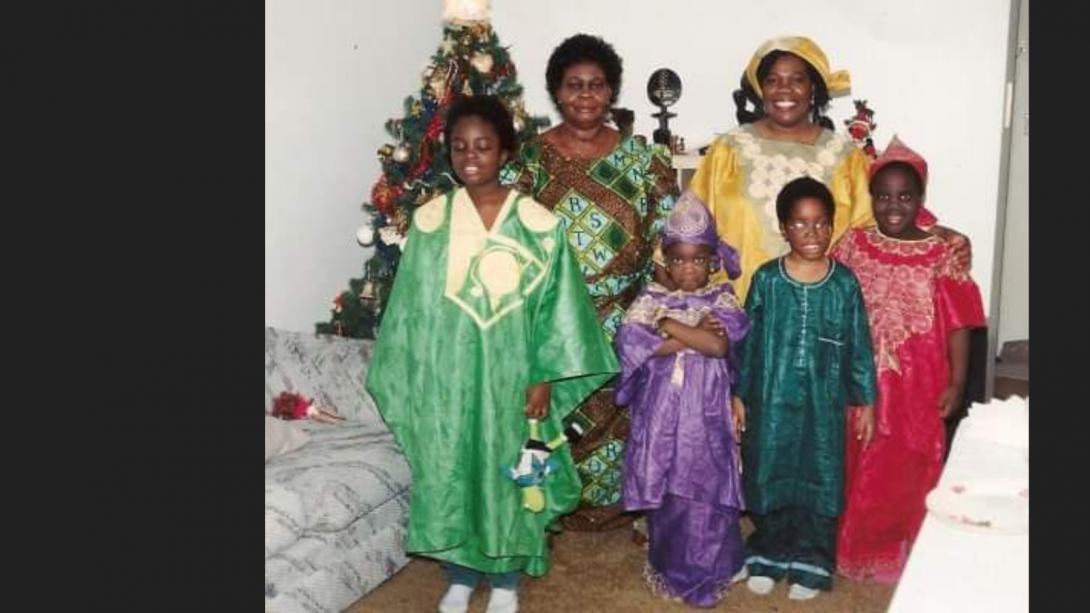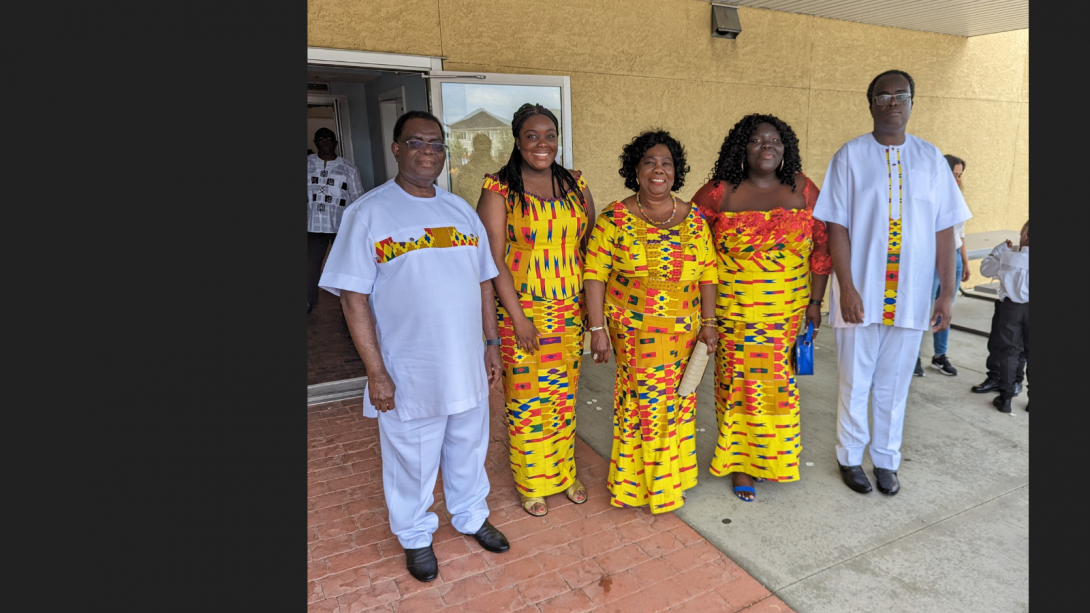STORY PROFILE TEMPLATE PAGE TEMPLATE

TEXT BLOCK PARAGRAPH TEMPLATE.
Children start forming their own beliefs and attitudes at an early age. They learn from everything around them—including family, friends, teachers and the media.
Early education is key when it comes to fostering a culture of anti-racism. Sarah Adomako-Ansah is an Edmonton educator passionate about promoting diversity and equity.
“One of the main reasons I became a teacher is to be the representation I wanted so badly growing up,” she says. “My late twin brother, David, chose his field of journalism for the same reason.”
(Editor’s note: David passed away in June 2013 from Lupus. A leadership scholarship has been set up in his name).
“I was so lucky that school wasn't a challenge for me,” Adomako-Ansah continues. “I know that privilege isn't afforded to others. My siblings and I were well-liked and academically strong. Once I graduated from Archbishop MacDonald in 2007, my path was clear: I wanted to be a principal.”
She sat down with us to share her insights on Black History Month, her journey as an educator and her involvement with the Black Teachers Association of Alberta, The Black Bookshelf Project and Canadian Human Rights Museum.
TEXT BLOCK PARAGRAPH TEMPLATE.
Q: What does Black History Month mean to you?
Sarah: To me, Black History Month is an opportunity for celebration. It’s a chance to learn about people in and around our communities to support, engage with, and spend time learning about and from people from African and Caribbean heritage.
Q: Can you share your journey as an educator and how you became involved in initiatives such as The Black Teachers Association of Alberta and The Black Bookshelf Project?
Sarah: The first step to leadership in education is understanding, so teaching was my first goal. I went through university at two sites—Grant MacEwan College (at the time) and then the University of Alberta. I graduated at the end of March 2013. As a substitute teacher, I started teaching with the Edmonton Catholic School Division on April 1, 2013.
IMAGE PARAGRAPH TEMPLATE

TEXT BLOCK PARAGRAPH TEMPLATE.
In August of 2013, I secured a position at an incredible elementary school. I worked as a teacher in grades three through six at that school for eight years. In June of 2020, I co-founded the Black Teachers Association to support all teachers in supporting all students. It was created at the height of the pandemic in trying to talk to students about things they saw online, in isolation, while teaching and learning online due to COVID-19. We are still a unified presence in the province's education sector, supporting teachers north, south, east, and west.
Additionally, I have had the ability to join the board of The Black Bookshelf Project with a group of friends here in Edmonton. The project aims to bring representation into schools and homes using literature. Things like this bring me joy as an educator.
Currently, my role with the Edmonton Catholic School Division is the Equity, Diversity, Inclusion, and Anti-Racism Consultant for all schools. It's a lot of work, but it's important work, and I am grateful for the opportunity.
Q: You also created the Pass the Mic: Let's Talk About Racism project while you were the Educator In Residence for the Canadian Museum for Human Rights in Winnipeg. What does this project hope to achieve?
Sarah: One of the highlights of my career thus far has been holding the role of Educator in Residence at the Canadian Museum for Human Rights for two years. I learned so much in that space about Canada’s history, human rights education, Indigenous ways of knowing and so much more. I also learned so much about myself and what is truly important to me in this space.
I was hired in this role to support the Museum’s efforts regarding anti-racism education. From that, Pass the Mic: Let’s Talk About Racism was created. I think it’s important to give people the microphone to tell their own stories rather than have their stories told by others. My sincere hope is that, not for this moment in time, but for the future of education, students learn to listen to one another, unlearn harmful stereotypes and language, become allies for each other and have pride in themselves and where they come from.
Q: The project also features fellow Edmontonian, Olympic bobsledder Dawn Richardson Wilson. What does it mean for your students to see a young athlete from Edmonton succeed on the global stage?
Sarah: Getting to meet Dawn was so special. We both grew up in the Edmonton Catholic School Division and have ancestry from Ghana, a country in West Africa. Getting to hear about her success, from her, was so powerful.
Our conversation was more than just me asking her questions; it was two Black women relating to one another, understanding one another and being one another’s cheerleaders. She’s on a global stage doing something so impressive and challenging and staying so humble, kind, and grounded. I think her influence will inspire, especially for Black girls, which is my sincere hope. I will cherish that moment with her for a very long time.
IMAGE PARAGRAPH TEMPLATE

TEXT BLOCK PARAGRAPH TEMPLATE.
Q: What advice would you give educators passionate about promoting diversity and inclusion in Edmonton?
Sarah: I have two pieces of advice I can offer. The first one is to find people who champion diversity in your community. Doing this job is much harder in isolation. Finding community in others is so motivating, and there is major learning that can come from one another’s experiences.
Secondly, celebrate diversity often, and not only related to race. Diversity comes in so many different forms, and it’s important to celebrate the diverse people in our buildings when it comes to race, ability, language, body shape and size, and identity.
Q: How do you envision the future of Black history education and anti-racism initiatives in Edmonton?
Sarah: My hope is that we will look past equity-deserving months to celebrate this type of work moving forward. We don’t have to wait until February to talk about Black history or June to talk about Indigenous heritage. We can talk about all of our diverse perspectives all year long.
Q: What may people not know about Black history in Edmonton?
Sarah: I don’t think people know how much Black joy and success comes from our city! So many people are doing so much to amplify Black voices in this city - reach out to someone and chat about it!
TEXT BLOCK PARAGRAPH TEMPLATE.
Q: Is there anything else you’d like to add? Any other resources you’d like to share?
Sarah: Specifically for teachers, I had the ability to partner with CBC a couple of years ago to write the teacher’s guide for their program called Black on the Prairies. It ties Black history in Alberta, Saskatchewan and Manitoba to our curriculum and encourages use before and after February, not just in it. Check it out!
A person I continue to learn from is Dr. Farha Shariff. Dr. Shariff is an intersectional anti-oppression educator at the University of Alberta. She is someone who, although not Black, has so much to include in this work, and I am grateful for her.
Lastly, Gail-Ann Wilson-Mitchell is someone who I consider, not only a mentor, but a friend. Gail-Ann is a cultural diversity educator and award winning anti-racism journalist. She has incredible insight and I think she is someone you should follow.